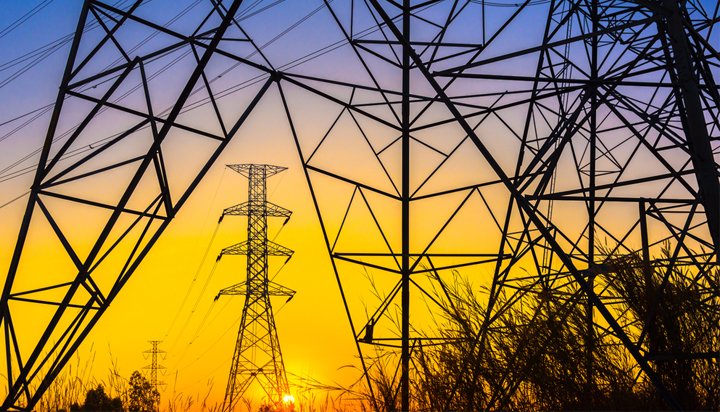The Labour Party has announced plans to take National Grid out of the hands of private shareholders and into public ownership.
Shadow Business and Energy Secretary Rebecca Long Bailey claims privatisation of the UK’s energy grid is “ripping off customers”, with 25% of the energy bills paid out to network companies and more than £13 billion paid out in dividends to shareholders over the last five years.
Labour intends to create a National Energy Agency that will own and maintain transmission infrastructure – replacing National Grid – and ensure access to heat and electricity is a “human right”.
The Agency will oversee decarbonisation targets to meet Labour’s goal of 60% renewable energy by 2030 and net zero carbon before 2050.
Under the party’s ‘Bringing Energy Home’ plans, the existing distribution network operators (DNOs) will also be replaced by 14 Regional Energy Agencies (REAs), responsible for decarbonising electricity and heat, ensure every household can access affordable energy, reduce fuel poverty as well as take responsibility for rolling out the UK’s electric vehicle (EV) charging infrastructure and create jobs.
Labour also plans to enable local authorities to set up Municipal Energy Agencies (MEAs) if they want to accelerate the energy transition and take over responsibility for the ownership and operation of distribution networks from the REAs.
In addition, the party said it will support the establishment of Local Energy Communities (LECs) to develop small-scale energy generation and engage with distribution at the micro level, such as a housing estate, street or small village.
Solar ambitions
The Labour Party has also set out plans to install solar panels on nearly two million homes as part of its Green Industrial Revolution.
Under the plans, solar panels will be installed on a million social homes and low income households to tackle fuel poverty, provide them with free energy and save an average of £117 a year on their energy bills, which Labour says could rise to £270 for retired homes.
Any unused electricity generated will be used by the grid, “raising an additional £66 million per year for local authorities”.
In addition, 750,000 homes will have solar panels installed through a programme of interest free loans, grants and changes to regulations.
Labour estimates its policy will create 16,900 jobs and save 7.1 million tonnes of CO2 – equivalent to taking four million cars off the roads.
Ms Bailey adds: “Climate change represents a risk to our future but also an opportunity to gather our resources and transform it through a Green Industrial Revolution. That means dramatic, public driven and co-ordinated action, without which we simply will not be able to tackle climate change.
“So our plans see climate justice and social justice as inseparable. It’s an insult and an injustice to our people and our planet for companies operating the grid to rip customers off, line the pockets of the rich and not invest properly in renewable energy.
“Only by taking the grid into public ownership can we decarbonise the economy at the pace needed to secure the planet for our children and grandchildren while ending the rip off, creating good jobs in local communities and making heating and electricity a human right.”
What’s the cost to consumers?
The Labour Party says when the grid is taken into public ownership, it will exchange shares for bonds, which it claims is “cost neutral” to the public purse “because the government will exchange a bond for a profitable asset”.
It also claims household bills will fall “as a result of billions not being lost in dividends and excessive high interest payments”.
The community solar project will be classified as capital expenditure and funded through the National Transformation Fund and installing solar panels on low income and social housing is estimated to cost between £1.75 billion to £2.14 billion over a five-year period.
Labour slammed the Conservative Party’s claim its plans would force taxpayers to cover the £45 billion of debts that energy companies have racked up as “ludicrous”.
It suggests billpayers are paying the service company debt already but in public hands, “the higher credit ratings of public corporations will allow us to re-service this debt at a lower rate over time”, which it says would mean “less money will be spent on interest and more will be put back into energy infrastructure or billpayers’ pockets”.
National Grid’s response
National Grid said Labour’s proposals are the “last thing” that is needed and would delay the progress towards the green energy transition.
A spokesperson added: “National Grid is one of the most reliable networks in the world, we are also at the heart of the decarbonisation agenda. Only a few days ago we broke the record for the longest period of time the country has gone without coal generation. We deliver reliability, investment and innovation for just 3% of the average energy bill.
“These proposals for state-ownership of the energy networks would only serve to delay the huge amount of progress and investment that is already helping to make this country a leader in the move to green energy.
“At a time when there is increased urgency to meet the challenges of climate change the last thing that is needed is the enormous distraction, cost and complexity contained in these plans.”
You can find additional responses from industry to Labour’s plans.





